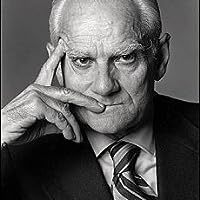Conformism Quotes
Quotes tagged as "conformism"
Showing 1-30 of 45

“Our wretched species is so made that those who walk on the well-trodden path always throw stones at those who are showing a new road.”
― Philosophical Dictionary
― Philosophical Dictionary

“It is when we think we can act like God, that all respect is lost, and I think this is the downfall of peace. We lie if we say we do not see color and culture and difference. We fool ourselves and cheat ourselves when we say that all of us are the same. We should not want to be the same as others and we should not want others to be the same as us. Rather, we ought to glory and shine in all of our differences, flaunting them fabulously for all to see! It is never a conformity that we need! We need not to conform! What we need is to burst out into all these beautiful colors!”
―
―

“The television is 'real'. It is immediate, it has dimension. It tells you what to think and blasts it in. It must be right. It seems so right. It rushes you on so quickly to its own conclusions your mind hasn't time to protest, 'What nonsense!'.”
― Fahrenheit 451
― Fahrenheit 451

“Mass communication--wonder as it may be technologically and something to be appreciated and valued--presents us wit a serious daner, the danger of conformism, due to the fact that we all view the same things at the same time in all the cities of the country. (p. 73)”
― The Courage to Create
― The Courage to Create

“For the sake of my country, and perhaps a little for the sake of my soul, I have given up the deep peace of being in opposition.”
― Black Lamb and Grey Falcon
― Black Lamb and Grey Falcon

“Our time prides itself on having finally achieved the freedom from censorship for which libertarians in all ages have struggled...The credit for these great achievements is claimed by the new spirit of rationalism, a rationalism that, it is argued, has finally been able to tear from man's eyes the shrouds imposed by mystical thought, religion, and such powerful illusions as freedom and dignity. Science has given us this great victory over ignorance. But, on closer examination, this victory too can be seen as an Orwellian triumph of an even higher ignorance: what we have gained is a new conformism, which permits us to say anything that can be said in the functional languages of instrumental reason, but forbids us to allude to...the living truth...so we may discuss the very manufacture of life and its 'objective' manipulations, but we may not mention God, grace, or morality.”
― Computer Power and Human Reason: From Judgment to Calculation
― Computer Power and Human Reason: From Judgment to Calculation

“Standing alone today demands even more courage and strength than it did in former cultures. From infancy, children have been programmed to perform. Rather than living from their own needs and feelings, they learn to assess situations in order to please others. Without an inner core of certainty grounded in their own musculature, they lack the inner resources to stand alone. Pummelled by mass media and peer group pressures, their identity may be utterly absorbed by collective stereotypes. In the absence of adequate rites of passage, ad-men become the high priests of an initiation into the addictions of consumerism.”
― The Pregnant Virgin: A Process of Psychological Transformation
― The Pregnant Virgin: A Process of Psychological Transformation

“So the experience I have of my everyday work environment is of a conformist, claustrophobic and repressive verbal universe, a penitential domain of reason-mongering in which hyperactivity in detail—the endlessly repeated shouts of “why,” the rebuttals, calls for “evidence,” qualifications and quibbles—stands in stark contrast to the immobility and self-referentiality of the structure as a whole. I suffer from recurrent bouts of nausea in the face of this densely woven tissue of “arguments,” most of which are nothing but blinds for something else altogether, generally something unsavory; and I feel an urgent need to exit from it altogether.”
― A World without Why
― A World without Why

“Tak długo byliście antykonformistami, aż wreszcie upadły ostatnie normy, przeciw którym można się było jeszcze buntować. Dla mnie nie zostawiliście już nic, nic! Brak norm stał się waszą normą. A ja mogę się buntować tylko przeciw wam, czyli przeciwko waszemu rozpasaniu.”
― Tango
― Tango

“Most people are, in the most ordinary sense, very limited. They pass their time, day after day, in idle, passive pursuits, just looking at things - at games, television, whatever. Or they fill the hours talking, mostly about nothing of significance - of comings and goings, of who is doing what, of the weather, of things forgotten almost as soon as they are mentioned. They have no aspirations for themselves beyond getting through another doing more or less what they did yesterday. They walk across the stage of life, leaving everything about as it was when they entered, achieving nothing, aspiring to nothing, having never a profound or even original thought... This is what is common, usual, typical, indeed normal. Relatively few rise above such a plodding existence.”
― Restoring Pride
― Restoring Pride
“But the death of spirit goes by another name. It is usually called the birth of reason.
The dreams of reason are, at this late date, everywhere to be seen, much like headstones in a cemetery. The inertia of a standard which prunes every tree to the dimensions of a utility pole will, with the same determination, core the heart out of the human personality. This fermenting mind, intoxicated by its heady sobriety, methodically slits its own throat, all the while mistaking the elongating wound for a smile.
When the spirit is free, according to Nietzsche, the head will be the bowels of the heart. In these top heavy days that have turned life topsy-turvy the head has little appetite for freedom. Instead it has developed a taste for coprophagy.”
―
The dreams of reason are, at this late date, everywhere to be seen, much like headstones in a cemetery. The inertia of a standard which prunes every tree to the dimensions of a utility pole will, with the same determination, core the heart out of the human personality. This fermenting mind, intoxicated by its heady sobriety, methodically slits its own throat, all the while mistaking the elongating wound for a smile.
When the spirit is free, according to Nietzsche, the head will be the bowels of the heart. In these top heavy days that have turned life topsy-turvy the head has little appetite for freedom. Instead it has developed a taste for coprophagy.”
―

“The air was icy, Mari came back in, grabbed a coat and went out again. Outside, far from the eyes of everyone, she lit a cigarette. She smoked slowly and guiltlessly, thinking about the young woman, the piano music she could hear and life outside the walls of Villete which was becoming unbearably difficult for everyone.
In Mari's view this difficulty was due not to chaos or disorganization or anarchy but to an excess of order. Society had more and more rules and laws that contradicted the rules and new rules that contradicted the laws. People felt too frightened to take a step outside the invisible regulations that guided everyone's lives.”
― Veronika Decides to Die
In Mari's view this difficulty was due not to chaos or disorganization or anarchy but to an excess of order. Society had more and more rules and laws that contradicted the rules and new rules that contradicted the laws. People felt too frightened to take a step outside the invisible regulations that guided everyone's lives.”
― Veronika Decides to Die

“Não há como ser progressista sendo socialmente conservador, porque uma comunidade conformista não gera inovação. E a sociedade não pode ser gerida como uma empresa privada. Você não pode se livrar de um cidadão porque ele está insatisfeito ou rende pouco.”
― Tupinilândia
― Tupinilândia

“The air was icy, Mari came back in, grabbed a coat and went out again. Outside, far from the eyes of everyone, she lit a cigarrete. She smoked slowly and guiltlessly, thinking about the young woman, the piano music she could hear and life outside the walls of Villete which was becoming unbearably difficult for everyone.
In Mari's view this difficulty was due not to chaos or disorganization or anarchy but to an excess of order. Society had more and more rules and laws that contradicted the rules and new rules that contradicted the laws. People felt too frightened to take a step outside the invisible regulations that guided everyone's lives.”
― Veronika Decides to Die
In Mari's view this difficulty was due not to chaos or disorganization or anarchy but to an excess of order. Society had more and more rules and laws that contradicted the rules and new rules that contradicted the laws. People felt too frightened to take a step outside the invisible regulations that guided everyone's lives.”
― Veronika Decides to Die

“He went up to the counter and asked for his preferred brand at the same time that three other people asked for the same cigarettes, and the tobacconist slid them rapidly across the marble of the countertop toward the four hands holding out money - four identical packs, which the four hands picked up with identical gestures. Marcello noticed that he took the pack, squeezed it to see if it was fresh enough, and then ripped off the seal the same way the other three did. He even noticed that two of the three tucked the pack back inte a small inner pocket in their jackets, as he did. Finally, one of the three stopped just outside the tobacconist’s to light a cigarette with a silver lighter exactly like his own. These observations stirred a satisfied, almost voluptuous pleasure in him. Yes, he was the same as the others, the same as everyone. The same as the men who bought the same brand of cigarettes, with the same gestures, even the men who turned at the passage of a women dressed in red, himself among them, to eye the quiver of her solid buttocks under the thin material of the dress. Even if, as in this last gesture, the similarity was due more to willed imitation in his case than to any real personal inclination.”
― The Conformist
― The Conformist

“Many people... go through life with hardly an original thought; gravitate from one pleasure or amusement to another; gain a livelihood doing what someone else has assigned; flee boredom as best they can; marry and beget children; and then, without having made the slightest difference of any unique significance, die and decay like any animal.”
― Restoring Pride
― Restoring Pride

“Like MacMillan and the clique of teachers and the coaches who all went to the same church and barbecued at one another's houses, much of the country's small-bore civil servants were itching to do some repressing of their own. Millions of Dick Cheney wannabes swelling the ranks, enjoying their little authoritarian fiefdoms.”
― Ohio
― Ohio
“The materialist interpretation of the world and of science itself is protected not by the facts or by the data of our honest experiences, but by what is essentially social and professional peer pressure, something more akin to the grade-school playground or high school prom. The world is preserved through eyes rolling back, snide remarks, arrogant smirks and subtle, or not so subtle, social cues, and a kind of professional (or conjugal) shaming.”
― The Flip: Epiphanies of Mind and the Future of Knowledge
― The Flip: Epiphanies of Mind and the Future of Knowledge

“Yeah,” Robertson nodded grimly. “It’s the whole problem, isn’t it? People just doing their jobs.”
― A perfect Patricide: Part 1
― A perfect Patricide: Part 1

“Dr Igor paused but he knew that Mari was following his reasoning.
"So let's turn to your illness. Each human being is unique. Each with their own qualities, instincts, forms of pleasure, and desire for adventure. However, society always imposes on us a collective way of behaving. And people never stop to wonder why they should behave like that. They just accept it, the way typist accepted the fact that the qwerty keyboard is the best possible one. How you ever met anyone in your entire life who asked, why the hands of a clock should go in one particular direction, and not in the other?"
"No"
"If someone were to ask, the response they got would probably be, you are mad! If they persisted people would try to come up with a reason but they'd soon change the subject because there isn't a reason apart from the one I just given you. So, to go back to your question, what was it again?"
"Am I cured?"
"No, you are someone who is different. But who wants to be the same as everyone else. And that, in my view, is a serious illness."
"Is wanting to be different a serious illness?"
"It is if you force yourself to be the same as everyone else. It causes neurosis, psychosis and paranoia. It's a distortion of nature, it goes against god's laws for in all the world's woods and forests, he did not create a single leaf the same as another".”
― Veronika Decides to Die
"So let's turn to your illness. Each human being is unique. Each with their own qualities, instincts, forms of pleasure, and desire for adventure. However, society always imposes on us a collective way of behaving. And people never stop to wonder why they should behave like that. They just accept it, the way typist accepted the fact that the qwerty keyboard is the best possible one. How you ever met anyone in your entire life who asked, why the hands of a clock should go in one particular direction, and not in the other?"
"No"
"If someone were to ask, the response they got would probably be, you are mad! If they persisted people would try to come up with a reason but they'd soon change the subject because there isn't a reason apart from the one I just given you. So, to go back to your question, what was it again?"
"Am I cured?"
"No, you are someone who is different. But who wants to be the same as everyone else. And that, in my view, is a serious illness."
"Is wanting to be different a serious illness?"
"It is if you force yourself to be the same as everyone else. It causes neurosis, psychosis and paranoia. It's a distortion of nature, it goes against god's laws for in all the world's woods and forests, he did not create a single leaf the same as another".”
― Veronika Decides to Die

“He thinks as long as he can get up and go to work, no one should complain. He doesn't realise what he's like.”
― The Watch Tower
― The Watch Tower

“För att göra sig gällande här måste han bli som de andra, inte som Bogglund och drömmaren, utan som förmannen och Fågel blå. Då måste han, med befordringsdrömmarna hela tiden starkt levande inom sig lära sig klättra väl men icke fort. Han måste sparka till dem som ville komma om honom, alltid passa på, när ingen såg honom, smickra sig in hos de överordnade och lära sig intrigerna, så att intrigerna icke som bumeranger kom tillbaks. Han måste begränsa sig, envetet hålla sig inom gränsen, aldrig mera anse sig ha råd att göra en generös eftergift bara av nöjet att få göra den. Det var det man menade med "att sköta sig". (Sid. 225)”
― Kungsgatan
― Kungsgatan
“Astonishing, of course, that those very terms - 'reeducation' and 'rehabilitation' - do not scare the hell out of academics who use them and hear them. That they do not call to mind the not-so-distant history of authoritarian regimes in Europe or lead on to the thought that 'diversity,' for many of us in the academy, has now come to mean a plurality of sameness. More important: the words, apparently, do not suggest how vulnerable we are - all of us - to error, slippage, and hurt, and how the protocols, tribunals, and shamings currently favored by many in the academy have distracted us from our primary obligation, which is to foster an atmosphere of candor, good will, kindness, and basic decency without which we can be of no use to one another or to our students.”
― The Tyranny of Virtue: Identity, the Academy, and the Hunt for Political Heresies
― The Tyranny of Virtue: Identity, the Academy, and the Hunt for Political Heresies
“The more conformist the culture, the more taboo “no” becomes.”
― Finding Your Own North Star: Claiming the Life You Were Meant to Live
― Finding Your Own North Star: Claiming the Life You Were Meant to Live

“Lo extrañé mucho. Más que cualquier otra cosa de la que me haya visto obligado a desprenderme, lo que no es poco decir, y aún lo echo de menos ahora y siempre lo haré. Pero fue por una buena causa y en este mundo no podemos tener todo lo que queremos. No sería bueno para nosotros.”
― Lark Rise to Candleford. A trilogy
― Lark Rise to Candleford. A trilogy

“I long to get away, sometimes, from my own generation. I don't care whether it's into the past, or into the future, so long as it's away from the patter into simple realities again. I hate being a slave to my own age.
...
We are so afraid of sentimentality that we're losing the power of human feeling. Our writers today understand all the brutalities and cynicisms; but how many of them understand the simple human affections that hold decent human beings together and make the world worth living in?”
― The Sun Cure
...
We are so afraid of sentimentality that we're losing the power of human feeling. Our writers today understand all the brutalities and cynicisms; but how many of them understand the simple human affections that hold decent human beings together and make the world worth living in?”
― The Sun Cure

“REVERSAL
The reversal to mastery is to deny its existence or its importance, and therefore the need to strive for it in any way. But such a reversal can only lead to feelings of powerlessness and disappointment. This reversal leads to enslavement to what we shall call the false self.
Your false self is the accumulation of all the voices you have internalized from other people—parents and friends who want you to conform to their ideas of what you should be like and what you should do, as well as societal pressures to adhere to certain values that can easily seduce you. It also includes the voice of your own ego, which constantly tries to protect you from unflattering truths. This self talks to you in clear words, and when it comes to mastery, it says things like, “Mastery is for the geniuses, the exceptionally talented, the freaks of nature. I was simply not born that way.” Or it says, “Mastery is ugly and immoral. It is for those who are ambitious and egotistical. Better to accept my lot in life and to work to help other people instead of enriching myself.” Or it might say, “Success is all luck. Those we call Masters are only people who were at the right place at the right time. I could easily be in their place if I had a lucky break.” Or it might also say, “To work for so long at something that requires so much pain and effort, why bother? Better to enjoy my short life and do what I can to get by.”
As you must know by now, these voices do not speak the truth.
Mastery is not a question of genetics or luck, but of following your natural inclinations and the deep desire that stirs you from within. Everyone has such inclinations. This desire within you is not motivated by egotism or sheer ambition for power, both of which are emotions that get in the way of mastery. It is instead a deep expression of something natural, something that marked you at birth as unique. In following your inclinations and moving toward mastery, you make a great contribution to society, enriching it with discoveries and insights, and making the most of the diversity in nature and among human society. It is in fact the height of selfishness to merely consume what others create and to retreat into a shell of limited goals and immediate pleasures. Alienating yourself from your inclinations can only lead to pain and disappointment in the long run, and a sense that you have wasted something unique. This pain will beexpressed in bitterness and envy, and you will not recognize the true source of your depression.”
― Mastery
The reversal to mastery is to deny its existence or its importance, and therefore the need to strive for it in any way. But such a reversal can only lead to feelings of powerlessness and disappointment. This reversal leads to enslavement to what we shall call the false self.
Your false self is the accumulation of all the voices you have internalized from other people—parents and friends who want you to conform to their ideas of what you should be like and what you should do, as well as societal pressures to adhere to certain values that can easily seduce you. It also includes the voice of your own ego, which constantly tries to protect you from unflattering truths. This self talks to you in clear words, and when it comes to mastery, it says things like, “Mastery is for the geniuses, the exceptionally talented, the freaks of nature. I was simply not born that way.” Or it says, “Mastery is ugly and immoral. It is for those who are ambitious and egotistical. Better to accept my lot in life and to work to help other people instead of enriching myself.” Or it might say, “Success is all luck. Those we call Masters are only people who were at the right place at the right time. I could easily be in their place if I had a lucky break.” Or it might also say, “To work for so long at something that requires so much pain and effort, why bother? Better to enjoy my short life and do what I can to get by.”
As you must know by now, these voices do not speak the truth.
Mastery is not a question of genetics or luck, but of following your natural inclinations and the deep desire that stirs you from within. Everyone has such inclinations. This desire within you is not motivated by egotism or sheer ambition for power, both of which are emotions that get in the way of mastery. It is instead a deep expression of something natural, something that marked you at birth as unique. In following your inclinations and moving toward mastery, you make a great contribution to society, enriching it with discoveries and insights, and making the most of the diversity in nature and among human society. It is in fact the height of selfishness to merely consume what others create and to retreat into a shell of limited goals and immediate pleasures. Alienating yourself from your inclinations can only lead to pain and disappointment in the long run, and a sense that you have wasted something unique. This pain will beexpressed in bitterness and envy, and you will not recognize the true source of your depression.”
― Mastery
All Quotes
|
My Quotes
|
Add A Quote
Browse By Tag
- Love Quotes 97k
- Life Quotes 75.5k
- Inspirational Quotes 72.5k
- Humor Quotes 43.5k
- Philosophy Quotes 29.5k
- Inspirational Quotes Quotes 27k
- God Quotes 26k
- Truth Quotes 23.5k
- Wisdom Quotes 23.5k
- Romance Quotes 23k
- Poetry Quotes 22k
- Death Quotes 20k
- Happiness Quotes 18.5k
- Life Lessons Quotes 18.5k
- Hope Quotes 18k
- Faith Quotes 18k
- Quotes Quotes 16.5k
- Inspiration Quotes 16.5k
- Spirituality Quotes 15k
- Religion Quotes 15k
- Motivational Quotes 15k
- Writing Quotes 14.5k
- Relationships Quotes 14.5k
- Life Quotes Quotes 14k
- Love Quotes Quotes 13.5k
- Success Quotes 13.5k
- Time Quotes 12.5k
- Motivation Quotes 12k
- Science Quotes 11.5k
- Knowledge Quotes 11k



